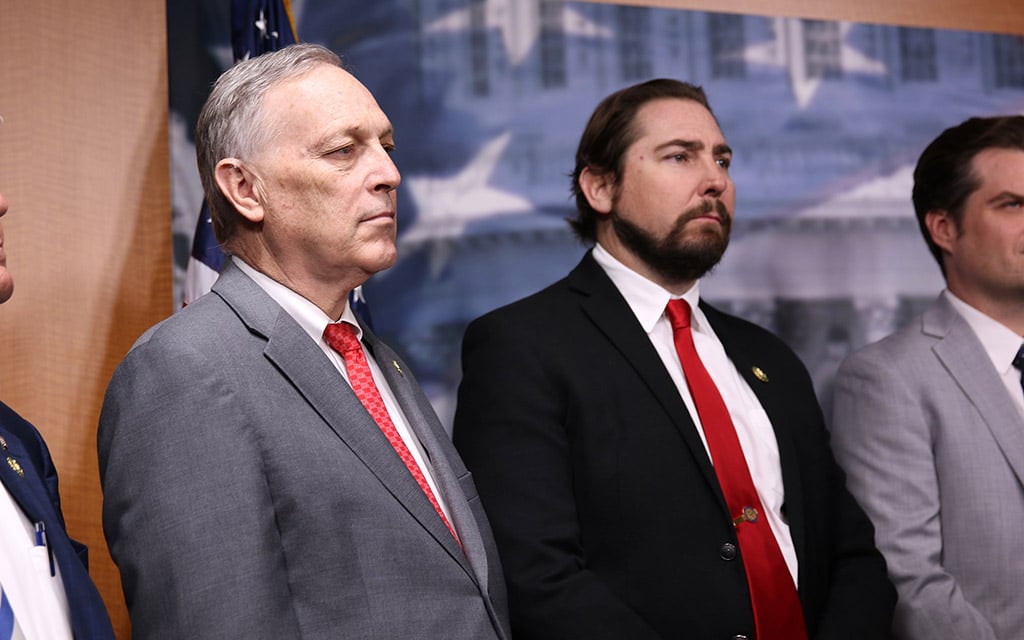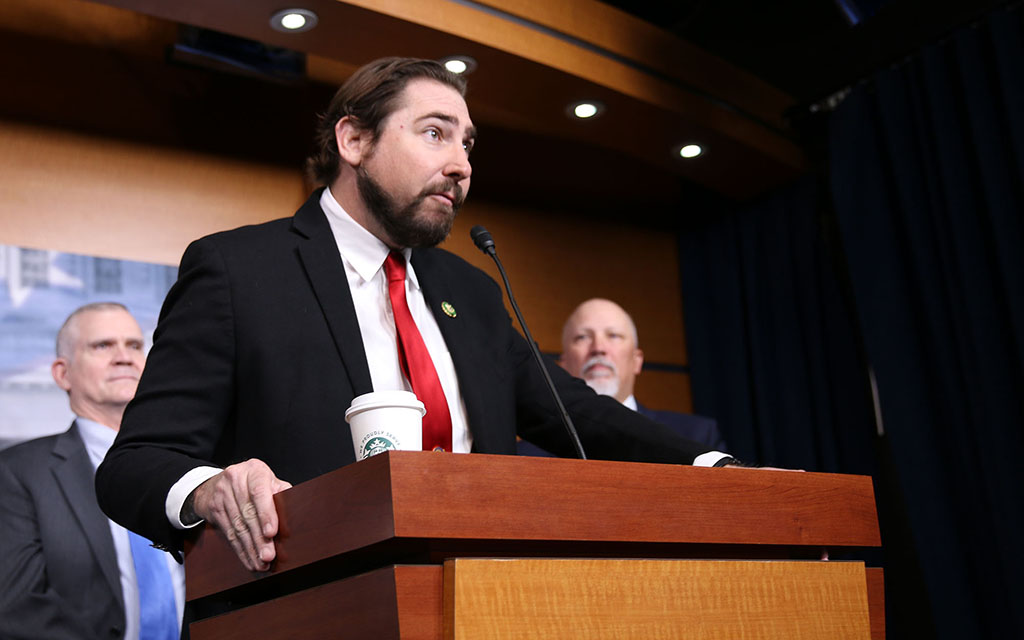WASHINGTON – Two Arizona lawmakers were among five GOP House members who broke ranks Thursday and voted to block the Defense authorization bill, the latest twist in a budget fight that could cause a government shutdown in 10 days.
Republican Reps. Andy Biggs of Gibert and Eli Crane of Oro Valley were part of the self-styled “Hold the Line” group that joined with 210 Democrats to block a procedural motion, on a 212-216 vote, that would have allowed the Defense bill to advance.
Democrats oppose the appropriations bill because it includes GOP-backed language to limit funding for things like abortion access and gender-affirming medical treatment for the troops. But for Republican opponents like Crane it’s about leveraging their handful of votes.
“We’re $33 trillion in debt, our southern border is broken and all people care about in this town is money and power,” Crane tweeted Thursday. “I’m not here to play that game. I’m here to change the way we do business.”
But critics called it less a principled decision and more a fit by fringe lawmakers threatening a government shutdown if they don’t get their way.
“‘If we don’t get what we want, we’re ready to shut the government down,'” is how Arizona political consultant Barry Aarons described the votes by Biggs, Crane and the others. “That’s just not the way you legislate. You legislate by consensus, and they’re not interested in that.”
The vote comes against the looming threat of a government shutdown. The current federal budget expires Sept. 30, and nonessential government services would come to a halt on Oct. 1 if Congress has not passed a new budget by then.
“The fact is that a government shutdown is not in anybody’s interest. It’s just not,” said Aarons, who owns policy consulting firm The Aarons Co.
Thursday’s vote was the second this week in which a handful of Republicans were able to stall the Defense budget bill by crossing the aisle and voting with the Democrats.
Biggs and GOP Reps. Matt Rosendale of Montana and Dan Bishop of North Carolina voted no on both days. They were joined on Tuesday by Ken Buck of Colorado and Ralph Norman of South Carolina, and Thursday by Crane and Marjorie Taylor Greene of Georgia.
Rep. Tom Cole, R-Okla., switched his vote at the last minute Thursday to join opponents, which allowed him to ask for reconsideration of the roll call – a procedural move that allowed House leaders to recess indefinitely. No further votes are scheduled, but House members have been advised that budget talks are continuing and votes could be called this weekend.
Biggs did not respond to a request for comment Thursday. Crane’s office responded with an emailed statement that said the freshman congressman would “use every tool at his disposal to force change on Capitol Hill for his constituents and future generations.”
In a tweet, Rosendale said he was “Proud to hold the line with my colleagues” and rein in “out-of-control spending and stand up against the D.C. Cartel!”
Rosendale blamed the “cartel” of using the must-pass Defense bill as a vehicle to “enable them to create another massive spending measure.”
If any bill can get out of the Republican-controlled House in the next 10 days, it would still need to get through the Democrat-controlled Senate, where even some GOP members have said they will not go along with the House proposals.
Mike Noble, the founder and CEO of Noble Predictive Insights, said the House stalemate is evidence of the splintering of the Republican Party.
“The Republican Party used to be very strong on national defense and geopolitical issues and defenders of freedom,” Noble said Thursday. “However, you have parts, or you have segments of the Republican Party that don’t really act like Republicans when it comes to national security.”
“This group of Republicans, which is very much a minority… but they don’t really act like real Republicans that is for sure,” he said.
While the stalling tactics may play well some in the far-right wing of the party, Aarons said, it could end up as a liability with more moderate voters.
“Crane may think this is great … but he’s in a marginal district,” Aarons said. “I think those independent voters are going to take a second look at him if he is even partially responsible for what’ll be a government shutdown.”




